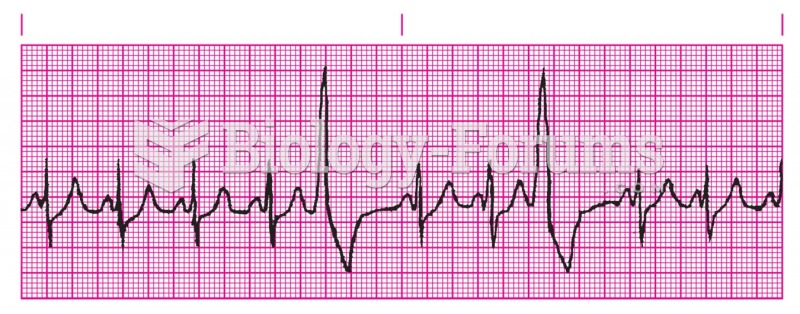Answer to Question 1
4
Rationale:
1. Although pain relief can lead to a more enjoyable experience and allow the mother to be less fatigued, it might be the view of the nurse and not the mother. It is important to respect the client's wishes, when possible. The decision not to medicate should be an informed one, and it is possible that the client does not know about the effects pain and stress can have on the fetus. Once the effects are explained, it is still the client's choice whether to receive medication.
2. Although pain relief can lead to a more enjoyable experience and allow the mother to be less fatigued, it might be the view of the nurse and not the mother. It is important to respect the client's wishes, when possible. The decision not to medicate should be an informed one, and it is possible that the client does not know about the effects pain and stress can have on the fetus. Once the effects are explained, it is still the client's choice whether to receive medication.
3. Although pain relief can lead to a more enjoyable experience and allow the mother to be less fatigued, it might be the view of the nurse and not the mother. It is important to respect the client's wishes, when possible. The decision not to medicate should be an informed one, and it is possible that the client does not know about the effects pain and stress can have on the fetus. Once the effects are explained, it is still the client's choice whether to receive medication.
4. Although pain relief can lead to a more enjoyable experience and allow the mother to be less fatigued, it might be the view of the nurse and not the mother. It is important to respect the client's wishes, when possible. The decision not to medicate should be an informed one, and it is possible that the client does not know about the effects pain and stress can have on the fetus. Once the effects are explained, it is still the client's choice whether to receive medication.
Answer to Question 2
A
The first day of the menstrual bleeding is considered day 1 of the cycle. Ovulation occurs midcycle, or approximately day 14 . The day following ovulation is part of the secretory phase of the menstrual cycle.







